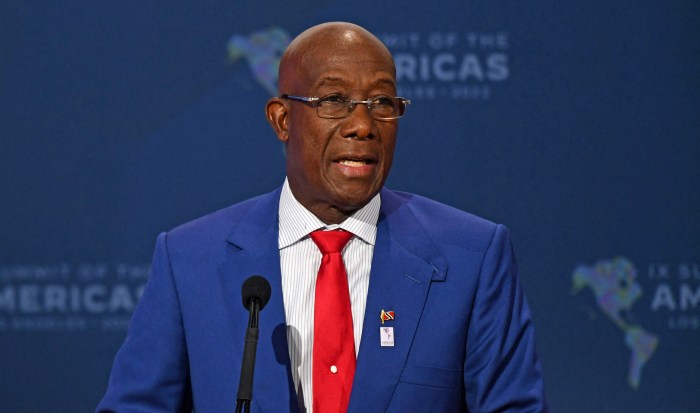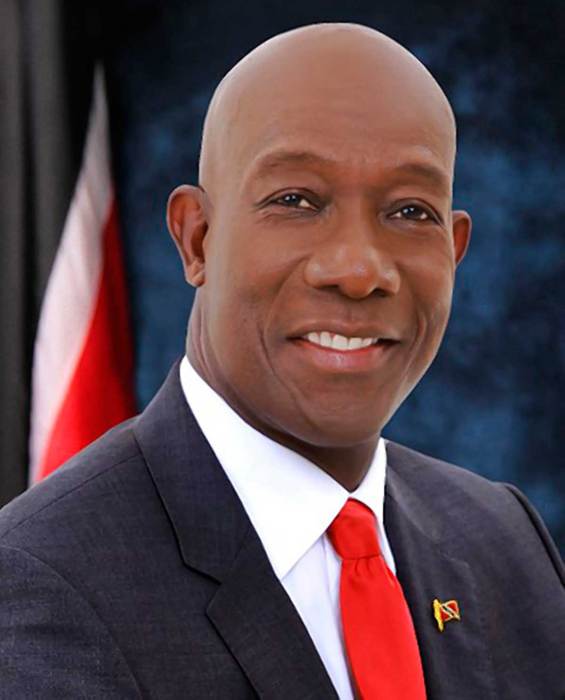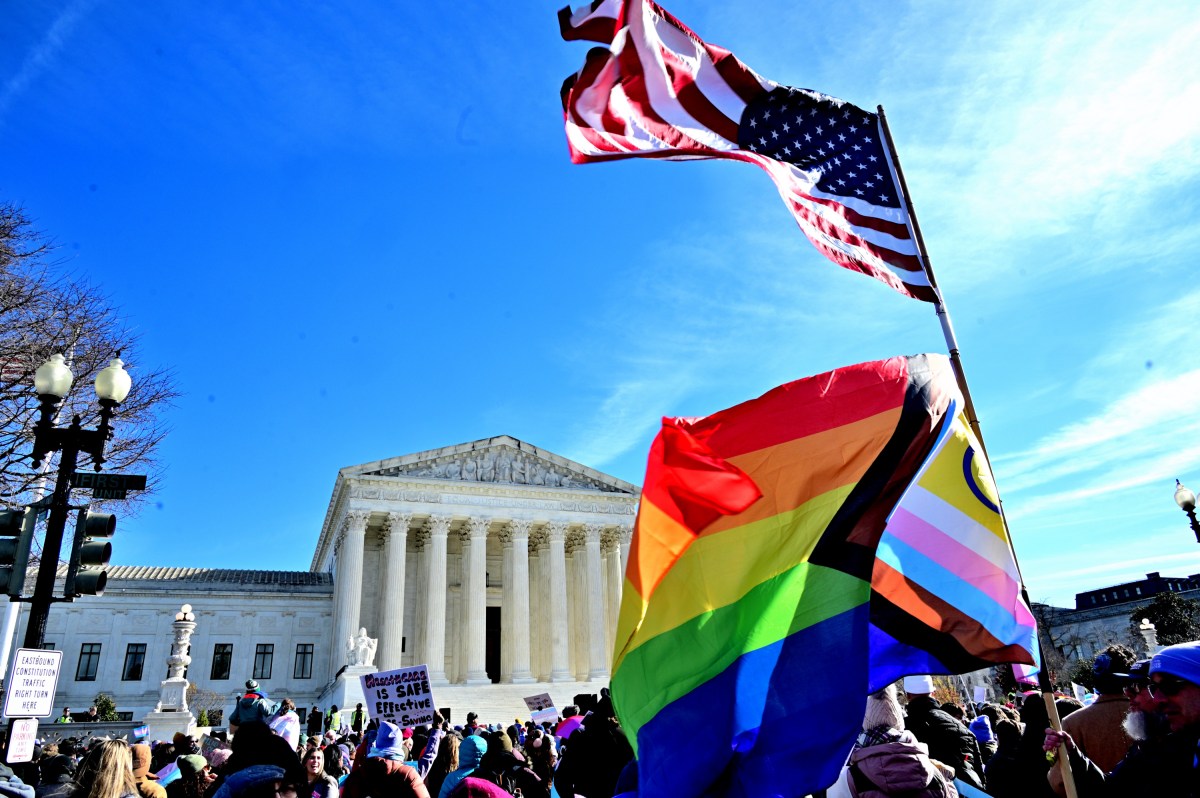Barbados
President of the Barbados’ Prison Officers Association pleaded not guilty of encouraging four other prison officers to stay off the job in May this year when he appeared in court recently.
Trevor Browne, who has been in the Prison Service for 34 years was granted Bds $1,000 bail when he appeared in court.
It is alleged that between May 1 and 9, he maliciously endeavored to seduce prison officers Shanell Ellis-Vaughn, Ophneal Austin and Stephenson Trotman from their duties.
Browne was charged under Section 27, Chapter 168 of the Prison Act, which states that, “any person, who directly or indirectly instigates, commands, counsels or solicits any meeting, sedition or disobedience to any lawful command of a prison officer or seduce any prison officer from his allegiance or duty, shall be guilty of an offence and shall be liable on conviction to imprisonment for one year.
Browne will return to court on Feb. 18 next year.
Caribbean
The Caribbean Court of Justice (CCJ) based in Port of Spain, Trinidad said it has this year delivered the highest number of judgements in a calendar year since it began its operation in 2005.
The CCJ, which was established in 2001 to replace the London-based Privy Council as the regional final court, said that it had issued 34 judgements and reasons for decisions in 2018.
“Throughout that period, the CCJ also heard 28 new matters in both its original and its appellate jurisdictions,” the court said, noting that its term ends on Monday, Dec. 17, 2918.
The CCJ said its last hearing for the year was involved a case from Barbados, where Renaldo Alleyne, who was convicted of manslaughter after six young women died when the Campus Trendz all was firebombed during a robbery in 2010, is appealing the six concurrent life sentences imposed by the court in Barbados.
The CCJ said that it is also preparing for the staging of its fifth biennial conference to be held in Jamaica from Dec. 13, in partnership with the General Legal Council.
The conference is being presented with the support of the Judicial Reform and Institutional Strengthening Project, the Caribbean Development Bank, CaribExport and Scotia Bank of Jamaica.
CCJ President Justice Adrian Saunders will deliver the feature address.
Guyana
The Guyana government has received a copy of the report on the Fly Jamaica landing incident at the Cheddi Jagan International Airport recently, Minister of State Joseph Harmon said.
The plane, carrying 118 passengers and eight crew members, was forced to make an emergency landing on November 9, 2018, minutes after it had taken off for Canada.
The plane had on board 35 Guyanese, one Trinidadian, 82 Canadians, one Pakistani and 11 American citizens. Six passengers suffered minor injuries and were treated at hospital and later discharged.
Harmon said the Minister of Public Infrastructure David Patterson had presented the report to Cabinet.
Meanwhile, passengers on the aircraft have filed a class-action lawsuit against the airline alleging physical harm and loss of personal belongings.
The lawsuit, which was recently filed, calls for “just compensation” for passengers and their families — 82 of them Canadians — but did not specify how much the group is seeking.
Jamaica
The Jamaica government is moving to ban the sale of sugary drinks at schools across the country from next year.
The government has issued guidelines, which will facilitate the sale of beverages in schools that contains sugar.
According to the Interim Guidelines for Beverages in School which as laid in Parliament recently, as of 2019, beverages containing more than six grams of sugar per 100 milliliters will no longer be allowed at public educational institutions.
The guidelines, which will take effect from Jan. 1, 2019, will prohibit sugar-sweetened beverages being sold or served to students up to l8 years-old in and around early childhood, primary and secondary-level educational institutions.
The guidelines also covers companies and groups involved in the provision of beverages to public schools, including canteen operators, vendors and teachers.
Health Minister Dr. Christopher Tufton, told legislators that beverages brought from home are not included in the guidelines and that the restrictions on sugar-sweetened beverages will be applicable during school hours and special school activities.
St. Vincent
The St. Vincent Geothermal Company Limited (SVGCL) has signed a contract with the Iceland Drilling Company, IDC (Jardbornir hf) to drill four wells on the island.
The wells are intended to supply steam for the geothermal power plant SVGCL is constructing.
The project aims to deliver a l0 megawatt geothermal power plant transforming SVG energy sector, reducing its dependency on imported fuel and providing a new sustainable and affordable course of energy based on an indigenous resource.
Once operational, the plant will supply all of the island’s baseload power and bring renewable energy sources to 73 percent of total power generation, well in excess of St. Vincent and the Grenadines Energy Action Plan target of 60 percent by 2023.
The commissioning of the plant will be in approximately two years. The development of the plant has been ongoing for some time with civil works starting in the second quarter of 2018. The turbines are expected to be tendered out in 2019.
SVGCL is a public-private partnership owned by the St. Vincent and the Grenadines government and Teykjavik Geothermal, an Iceland company focusing on geothermal power development with projects in East Africa, Mexico and the Caribbean.
Trinidad
Trinidad and Tobago ranks third among Caribbean countries in the latest Human Development Indices and Indicators, which was recently released by the United Nations Development Program (UNDP).
Highest ranked among the Caribbean nations in the groupings is the Bahamas at 54 out of 180 countries, surveyed,
Bahamas has Human Development Index (HDI) of 0.807, a life expectancy rate of 75.8 years and a gross national income (GNI) of US$26.681.
Barbados is second in CARICOM with a ranking of 58 and HDI of 0.800, a life expectancy of 76.1 and a GNI of US$15,843, while T&T is ranked 69th with an HDI of 0.784, a life expectancy rate of 70.3 and GNI of US$28,622,
Haiti is the lowest ranked in CARICOM and is described by the UNDP as belonging to the Low Human Development Index.
Most of the 14-member CARICOM countries, with the exception of Guyana and Haiti, are ranked in the Very High Human Development Index. Guyana is listed in the Human Development category.
Other countries in CARICOM that are ranked include Antigua and Barbuda at 70 with an HDI of 0.780, a life expectancy rate of 76.5 and a GNI of US$20,764.
The UNDP said most people today live longer, are more educated and have more access to goods and services than ever before.
– Compiled by Azad Ali


















